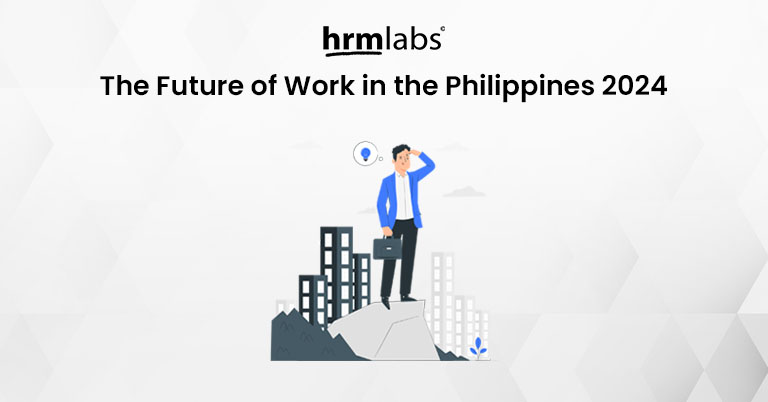The future of work is rapidly evolving, and the Philippines is no exception. With technological advancements, changing workforce demographics, and shifting work paradigms, young professionals in the Philippines need to stay informed and adaptable.
This article explores the key trends shaping the future of work in the Philippines for 2024, providing valuable insights to help you navigate and thrive in this dynamic landscape.
Embracing Technological Advancements
The impact of technological changes on occupations in the Philippines is significant. According to the International Labour Organization (ILO), the adoption of automation, artificial intelligence (AI), and other advanced technologies is reshaping various industries.
These changes bring both opportunities and challenges for the workforce.
Opportunities
Increased Efficiency: Automation and AI can streamline repetitive tasks, allowing professionals to focus on higher-value activities.
New Job Roles: The rise of technology creates new job categories, such as AI specialists, data analysts, and cybersecurity experts.
Challenges
Skill Gaps: There is a growing need for upskilling and reskilling to meet the demands of tech-driven roles.
Job Displacement: Certain roles may become obsolete, necessitating career transitions.
For young professionals, staying updated on technological trends and continuously enhancing digital skills will be crucial for career growth and adaptability.
Rise of Remote and Hybrid Work
The COVID-19 pandemic accelerated the adoption of remote work, and this trend is here to stay. According to Remotify, remote and hybrid work models are becoming the norm, offering flexibility and work-life balance.
Key Points:
- Flexibility: Remote work allows employees to work from anywhere, reducing commute time and enhancing productivity.
- Work-Life Balance: Flexible work arrangements contribute to better mental health and job satisfaction.
- Access to Global Opportunities: Remote work opens doors to international job opportunities without the need to relocate.
However, remote work also presents challenges such as maintaining team cohesion, managing time effectively, and ensuring cybersecurity. Companies are investing in digital collaboration tools and cybersecurity measures to address these concerns.
Focus on Employee Well-being
Employee well-being is taking center stage as organizations recognize its impact on productivity and retention. The future workplace will prioritize holistic well-being, encompassing physical, mental, and emotional health.
Trends:
- Mental Health Support: Companies are offering mental health resources, counseling services, and wellness programs to support employees.
- Work-Life Integration: Flexible schedules, remote work options, and family-friendly policies help employees achieve work-life integration.
- Health and Safety: Enhanced health and safety protocols ensure a safe working environment, whether in the office or remotely.
Continuous Learning and Development
Lifelong learning is essential in a rapidly changing work landscape. Employers are investing in training and development programs to equip their workforce with the skills needed for the future.
Key Initiatives:
- Upskilling and Reskilling: Companies provide training programs to help employees acquire new skills and stay relevant.
- Online Learning Platforms: Access to online courses and certifications allows professionals to learn at their own pace.
- Mentorship and Coaching: Mentorship programs connect employees with experienced professionals for guidance and career development.
For young professionals, taking advantage of these learning opportunities will be vital for career advancement and staying competitive in the job market.
Emphasis on Diversity and Inclusion
Diversity and inclusion are becoming integral to workplace culture. Organizations are recognizing the value of diverse perspectives and are actively promoting inclusive practices.
Diversity and inclusion Initiatives:
- Inclusive Hiring Practices: Companies are implementing strategies to attract and retain a diverse workforce.
- Employee Resource Groups (ERGs): ERGs provide support and networking opportunities for employees from diverse backgrounds.
- Bias Training: Training programs help employees recognize and mitigate unconscious bias.
Embracing diversity and fostering an inclusive environment not only enhance innovation but also create a more engaged and productive workforce.
Sustainable and Ethical Practices
Sustainability and ethics are increasingly important to employees and consumers. Organizations are adopting sustainable practices and ethical standards to meet these expectations.
Sustainable Practices:
- Environmental Initiatives: Companies are reducing their carbon footprint through eco-friendly practices and green technologies.
- Corporate Social Responsibility (CSR): CSR programs focus on giving back to the community and promoting social good.
- Ethical Standards: Organizations are committed to ethical behavior, transparency, and fair labor practices.
Young professionals should seek employers that align with their values and contribute to a positive social and environmental impact.
Data-Driven Decision Making
Data analytics is transforming how businesses operate and make decisions. The ability to analyze and interpret data is becoming a critical skill in the modern workplace.
Benefits:
- Informed Decision Making: Data-driven insights help organizations make strategic decisions and identify opportunities for growth.
- Personalized Experiences: Companies use data to tailor products, services, and experiences to meet customer needs.
- Performance Measurement: Data analytics enables the measurement of employee performance and the identification of areas for improvement.
Young professionals with data literacy skills will be well-positioned to contribute to data-driven initiatives and drive business success.
Conclusion
The future of work in the Philippines is evolving rapidly, driven by technological advancements, changing work models, and a focus on well-being and inclusivity. For young professionals, staying informed about these trends and continuously developing new skills will be essential for thriving in this dynamic environment.
As the workplace transforms, HRMLabs remains committed to providing innovative HR solutions that support the needs of modern businesses. From streamlining payroll processes to enhancing employee engagement, our tools are designed to help organizations navigate the future of work with confidence and success.

